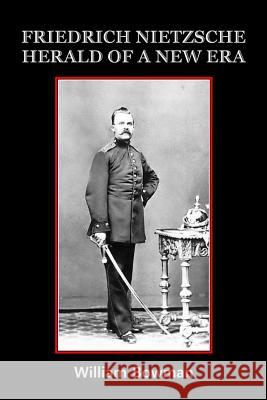Friedrich Nietzsche: Herald of a New Era » książka
Friedrich Nietzsche: Herald of a New Era
ISBN-13: 9780997570304 / Angielski / Miękka / 2016 / 180 str.
"My paradise lies in the shadow of my sword." With these words, Friedrich Nietzsche described his attitude toward his philosophical war against Christianity. Even though he saw that God is dead and as a result, Christian morality must eventually collapse and perish, Nietzsche condemned Christianity and wanted to "crush the infamy" because, as an anti-natural slave morality, Christianity corrupts humanity by making it weaker and by hindering the pursuit of knowledge and truth. Ever since the slave revolt in morality began over two thousand years ago, the slave morality of Christianity and its heir, the democratic movement, have been victorious in the struggle against master morality, resulting in the corrupted humanity of today. In response, Nietzsche waged a war against slave morality in his revaluation of all values in order to bring about the victory of a new master morality. As the means for this victory, Nietzsche's idea of the eternal recurrence provides the basis for both his philosophy of the future and his religion of the future (the Dionysian faith) that he intended to serve as the foundations of a European cultural rebirth during a new era when a new nobility tackles the greatest of all tasks, the higher breeding of humanity, with the goal of human enhancement. Nietzsche deemed it his destiny to be the herald of this new era. A product of a lifetime of study and thought, this book explains and connects in a systematic manner most of Nietzsche's major ideas: the death of God, master and slave moralities, revaluation of all values, Great Noon, Overman, last man, idea of the eternal recurrence, will to power, beyond good and evil, new nobility, higher breeding of humanity, philosophers of the future, amor fati, and the concept of Dionysus. The result is a fuller understanding of and appreciation for the relevance of Nietzsche's ideas to us today. The book is enhanced by a detailed chronology of Nietzsche's life, an explanatory summary of Thus Spoke Zarathustra, and an index of all Nietzsche's works quoted or cited therein.











